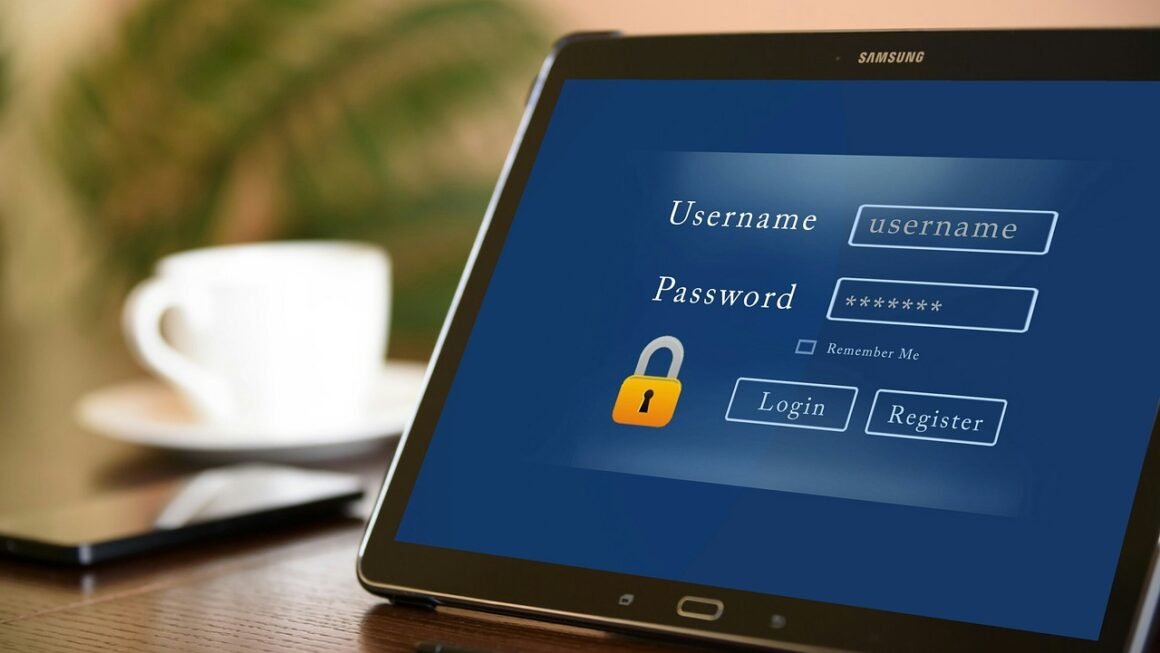The digital world offers unprecedented access to information and connection, but this increased accessibility comes with inherent risks. Cyber threats, data breaches, and online surveillance are becoming increasingly prevalent, making it essential to safeguard your online presence. One of the most effective tools for protecting your privacy and security in this environment is a Virtual Private Network (VPN). This blog post will delve into the world of VPNs, exploring their functionalities, benefits, and how to choose the right one for your needs.
What is a VPN?
The Basics of VPN Technology
A VPN, or Virtual Private Network, creates a secure, encrypted connection over a less secure network. Think of it as a private tunnel for your internet traffic. When you connect to a VPN, your data is encrypted, making it unreadable to anyone who might be eavesdropping. Your IP address is also masked, replacing it with the IP address of the VPN server. This makes it significantly harder to track your online activity back to you.
- Encryption: Converts your data into an unreadable format.
- IP Masking: Hides your real IP address, making you anonymous online.
- Tunneling: Creates a secure path for your data to travel.
How a VPN Works: A Step-by-Step Explanation
- Example: Imagine you’re using public Wi-Fi at a coffee shop. Without a VPN, anyone on that network could potentially see your unencrypted data, like passwords or browsing history. With a VPN, your data is encrypted, rendering it useless to potential hackers.
Common VPN Protocols
VPN protocols are the methods used to create the secure connection. Common protocols include:
- OpenVPN: A highly secure and open-source protocol.
- IKEv2/IPsec: Fast and stable, often used on mobile devices.
- WireGuard: A modern protocol known for its speed and efficiency.
- L2TP/IPsec: Older protocol, less secure than OpenVPN or WireGuard.
- PPTP: Outdated and insecure; avoid using this protocol.
Benefits of Using a VPN
Enhanced Security on Public Wi-Fi
Public Wi-Fi networks are notorious for their lack of security. Hackers can easily intercept data transmitted over these networks. A VPN provides a crucial layer of protection, encrypting your data and preventing eavesdropping.
- Protects against man-in-the-middle attacks.
- Shields your data from packet sniffers.
- Reduces the risk of identity theft.
- Example: While traveling, using a VPN on airport or hotel Wi-Fi can prevent your login credentials for important accounts (email, banking) from being compromised.
Protecting Your Privacy Online
VPNs help to protect your online privacy by masking your IP address and encrypting your internet traffic. This makes it difficult for websites, advertisers, and even your Internet Service Provider (ISP) to track your online activities.
- Prevents websites from tracking your location.
- Hides your browsing history from your ISP.
- Reduces targeted advertising.
- Data Point: A 2023 survey found that 68% of internet users are concerned about their online privacy. Using a VPN is a proactive step to address these concerns.
Accessing Geo-Restricted Content
Many streaming services and websites restrict content based on your location. A VPN allows you to bypass these restrictions by connecting to a server in a different country.
- Watch streaming services from different regions (e.g., Netflix, Hulu).
- Access websites blocked in your country.
- Bypass censorship.
- Example: If you’re traveling abroad and want to watch your favorite show that’s only available in your home country, connect to a VPN server in your home country.
Secure File Sharing and Torrenting
When downloading files via torrenting, your IP address is often visible to other users. A VPN can hide your IP address, protecting you from potential legal issues or privacy breaches.
- Hides your IP address from other torrent users.
- Provides an extra layer of anonymity.
- Reduces the risk of receiving copyright infringement notices.
- Important Note: While a VPN can enhance your privacy while torrenting, it doesn’t make illegal activities legal. Always be mindful of copyright laws.
Choosing the Right VPN
Key Features to Look For
When selecting a VPN, consider the following key features:
- Strong Encryption: Look for VPNs that use AES-256 encryption.
- No-Logs Policy: The VPN provider should not log your online activity. Read the privacy policy carefully.
- Server Locations: A wide range of server locations allows you to bypass geo-restrictions effectively.
- Speed: Choose a VPN with fast server speeds to avoid buffering and lag.
- User-Friendly Interface: The VPN app should be easy to use, even for beginners.
- Customer Support: Reliable customer support is essential if you encounter any issues.
- Kill Switch: A kill switch automatically disconnects your internet connection if the VPN connection drops, preventing your data from being exposed.
Free vs. Paid VPNs: Which is Better?
While free VPNs may seem tempting, they often come with limitations and risks:
- Limited Bandwidth: Free VPNs typically have data caps, limiting your usage.
- Slower Speeds: Free VPN servers are often overcrowded, resulting in slower speeds.
- Ad Injection: Some free VPNs inject ads into your browsing experience.
- Logging: Some free VPNs log your data and sell it to third parties.
- Less Secure: Free VPNs may use weaker encryption or have security vulnerabilities.
- Recommendation: Paid VPNs generally offer better security, faster speeds, and more features. Consider investing in a reputable paid VPN for optimal protection.
Research and Reviews
Before choosing a VPN, read reviews from reputable sources and compare different providers. Look for independent reviews that assess the VPN’s security, speed, and privacy policies. Websites like TechRadar, PCMag, and VPNMentor offer comprehensive VPN reviews.
- Tip: Look for VPNs that have been audited by third-party security firms. This provides an extra layer of assurance regarding their security practices.
Setting Up and Using a VPN
Installing the VPN Software
Most VPN providers offer user-friendly apps for various devices, including Windows, macOS, iOS, and Android.
Connecting to a VPN Server
Once the VPN app is installed, connecting to a server is usually a simple process:
- Tip: Experiment with different server locations to find the fastest connection.
Testing Your VPN Connection
After connecting to a VPN, it’s essential to verify that your connection is working properly:
Conclusion
In an increasingly interconnected world, using a VPN is a smart way to protect your online privacy and security. By encrypting your data, masking your IP address, and providing access to geo-restricted content, a VPN offers a range of benefits that can enhance your online experience. Choosing the right VPN and configuring it properly is crucial for ensuring effective protection. Remember to prioritize security, privacy, and performance when making your selection, and regularly test your VPN connection to ensure it’s functioning as expected.



